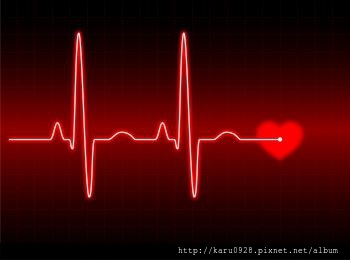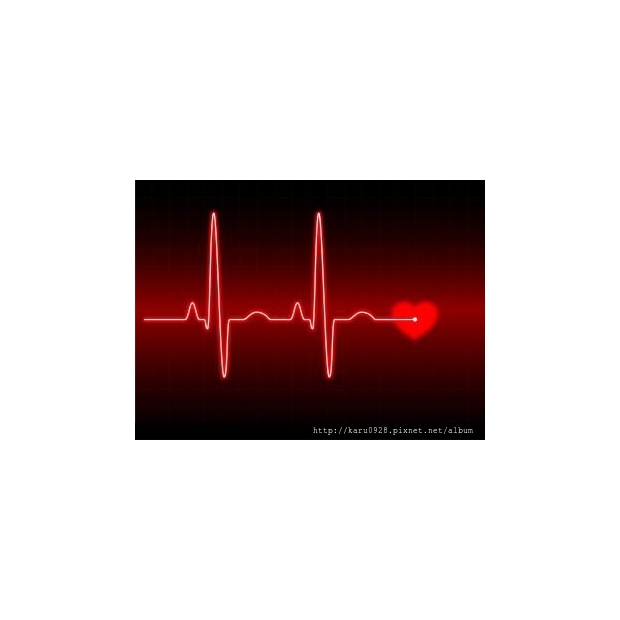Pamela Miles是美國著名的靈氣導師,她致力於將靈氣與醫學結合,並發表研究結果,讓靈氣發揮它在醫學公共衛生領域的角色-健康促進。靈氣在數據化的科學實證下,不再只是虛無飄渺的存在,而能更落實的走入醫院,幫助真正需要的臨床患者。
研究結果:靈氣治療可幫助心臟病患者,心率有所改善,情緒也更加舒緩。


很棒的一篇靈氣實證醫學文章,與您分享!
Reiki Treatment Helps Heart Attack Patients
靈氣可幫助心臟病患者(2010.09.18) 取自reikiinmedicine
By Pamela Miles
In the above study, published in one of the most prestitigious peer-reviewed conventional medical journals, patients who received a 20-minute Reiki treatment within three days after suffering a heart attack showed improved mood and heart rate variability (HRV). Let’s take a look at what this means in nontechnical language.
上述研究成果,發表在其中一個最負盛名的同行評審傳統醫學期刊上面,顯示心臟病發患者在三天內接收了20分鐘的靈氣後,心率變異性及情緒有所改善。讓我們來看看這個非技術性的手勢是什麼。
A heart attack is a stressful event which, like other stressful events, also causes a stress response. A stressed body is less resilient, less able to cope with more stress. This means a patient who has just had a heart attack has a higher risk of having another one. Doctors are well aware of this dangerous cycle, and helping the body recover its resilience is a primary goal in cardiac care.
心臟病是一件很有壓力的事情,跟其他有壓力的事情一樣,都會導致壓力反應。在壓力下的身體,其活力及處理更多壓力的能力會降低。這代表心臟病剛發作的病人有很高的風險再發作一次。醫生會高度注意這個危險循環,使身體回復活力是心臟照護的主要目的。
Recovering after a heart attack
在心臟病發後回復
That’s why standard hospital care after a heart attack includes beta blockers, drugs that help the body recover its resilience. But beta blockers work slowly, and some patients cannot tolerate them.
這就是一般醫院使用β-阻斷劑來當作心臟病照護的原因,該藥物幫助身體回復活力。但β-阻斷劑效果很慢,一些病人會無法忍受。
The Yale researchers wondered if a non-pharmacologic intervention might be just as effective, work faster, be safe for all patients–and even help patients feel better?
耶魯大學研究人員想知道是否有一個非藥物性的干涉,是對所有病人有效、效果快且安全,甚至能讓病人感覺更好?
In the high-tech acute cardiac care setting, why would doctors be interested in patients feeling better? Because subjectively feeling better is known to have objective effects on health. It is well documented that emotional stress negatively affects autonomic nervous system (ANS) function, and therefore heart disease (ANS controls heart rate).
在高科技的急性心臟護理的環境,醫生為什麼會對使患者感覺更好感興趣?因為主觀地感覺更好對於健康有客觀的影響。有充分的文獻記載說情緒壓力對自主神經系統(ANS)功能有不利影響,也對心臟疾病不利(因ANS控制心率)。
This randomized, controlled study looked at non-invasive, nondrug interventions to help patients recover faster from a heart attack. The study had three arms:
這個隨機控制研究是在調查,非侵入性且非藥物性的干涉是否能加快心臟病患者的回復速度。此研究分成三組:
- § Group 1 (12 patients) rested quietly without interruption.
- § Group 2 (13 patients) listened to slow tempo, meditative, classical music.
- § Group 3 (12 patients) received 20-minute Reiki treatment from Reiki-trained staff nurses.
- § 第一組(12位病人) 安靜的休息沒有干擾。
- § 第二組(13位病人) 聽慢節奏,冥想,古典的音樂。
- § 第三組(12位病人) 從受過靈氣訓練的護士接收20分鐘的靈氣。
Patients were measured initially for baseline, and again after the intervention, and the two sets of measurements were compared. The measurements from all groups were then compared to the others.
患者在測試前會做測量來當作基準,測試後再次做測量,兩組的測量結果會進行比較。所有組的測量結果會與其他組進行比較。
The impact of the intervention (rest, music, or Reiki) was measured in two ways, emotional state and heart rate variability (HRV), a physiologic measure that indicates if the patient’s body is recovering from the stress response.
我們從兩個方面測量這些干預(休息,音樂或靈氣)的影響,情緒狀態和心臟心率變異性(HRV),一個生理測量來指出是否患者從壓力反應中回復。
The patients rated themselves on both positive states (happy, relaxed, calm) and negative states (stressed, angry, sad, frustrated, worried, scared, anxious).
病人們也會對他們自己做評價,包含正面狀態(快樂,放鬆,平靜)及負面狀態(壓力,憤怒,悲傷,沮喪,憂慮,恐懼,焦慮)。
Reiki study results
靈氣研究結果
Reiki treatment improved all positive emotional states and reduced all negative states. Comparing the three groups, the Reiki group had the most positive changes in emotional state, and the resting control had the least.
靈氣改善了所有的正向情緒狀態並減少了所有負面狀態。把三組拿來比較,靈氣組在情緒上有更大的正向轉變,而休息組是最少的。
Reiki treatment also improved HRV. The benefit shown was comparable to that seen in a study of beta blockers.
靈氣也改善了心率變異性。研究顯示其好處與β-阻斷劑相比是不相上下的。
PS:Blog裡的文章翻譯內容及影片字幕為本人所有,如需引用請註明出處。(20160317 post on Blog)


